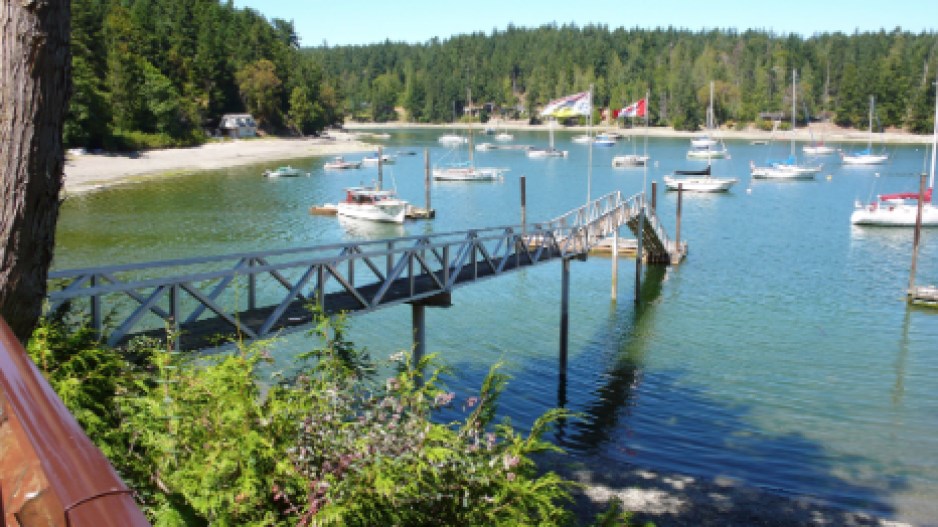British Columbia’s recreational real estate market is heating up this spring, with investors beginning to elbow out retirees in some prime vacation areas, according to the 2014 Royal LePage Recreation Property Report.
Government regulations, however, may freeze some smaller investors out of paradise.
“Before [the recession], recreational property was more for retirement or as a second residence,” said Janet Moore of Royal LePage Nanaimo Realty in Ladysmith. “But now, because prices are lower, buyers are looking to invest in waterfront properties which have been on the market some time.”
Prices in the Gulf Islands, which dot the British Columbia coast between the Lower Mainland and Vancouver Island, are now well below pre-recession prices, Moore notes.
“We have a lot of properties for sale right now,” he said.
Investors can buy a waterfront cottage on the smaller Gulf Islands from $250,000, but the price ranges from $400,000 to $1 million on the larger, BC Ferries-accessed Islands, such as Salt Spring, Moore said.
Investors may have to play for equity gains, however, because of regulations under the Islands Trust, the regional authority that restrict long-term rentals in most of the Gulf.
“There are very few property owners who are permitted to rent out a cottage long term.” Moore said.
Recent mortgage restrictions from Canada Mortgage and Housing Corporation (CMHC) – Canada’s largest mortgage insurer – could also hamper recreational investors. Under new guidelines that came into effect May 30, CMHC will no longer provide mortgage insurance on secondary homes. As well, anyone who has an insured mortgage will no longer be able to act as a co-borrower on another mortgage that CMHC insures.
Many buyers of recreational property, however, do not require mortgage insurance, which is normally associated with low down payments and higher-risk loans, said Bill Binnie broker-owner of Royal LePage Northshore, which handles coastal recreational sales. “These buyers have plenty of equity,” Binnie said.
The annual Royal LePage Recreational Property Report said the market has shifted in the past decade. Previously, said Phil Soper, president and CEO of Royal LePage Real Estate Services, vacation real estate demand was dominated by retiring baby boomers. “Our research found that [today] sales are driven largely by low interest rates and investors.”




